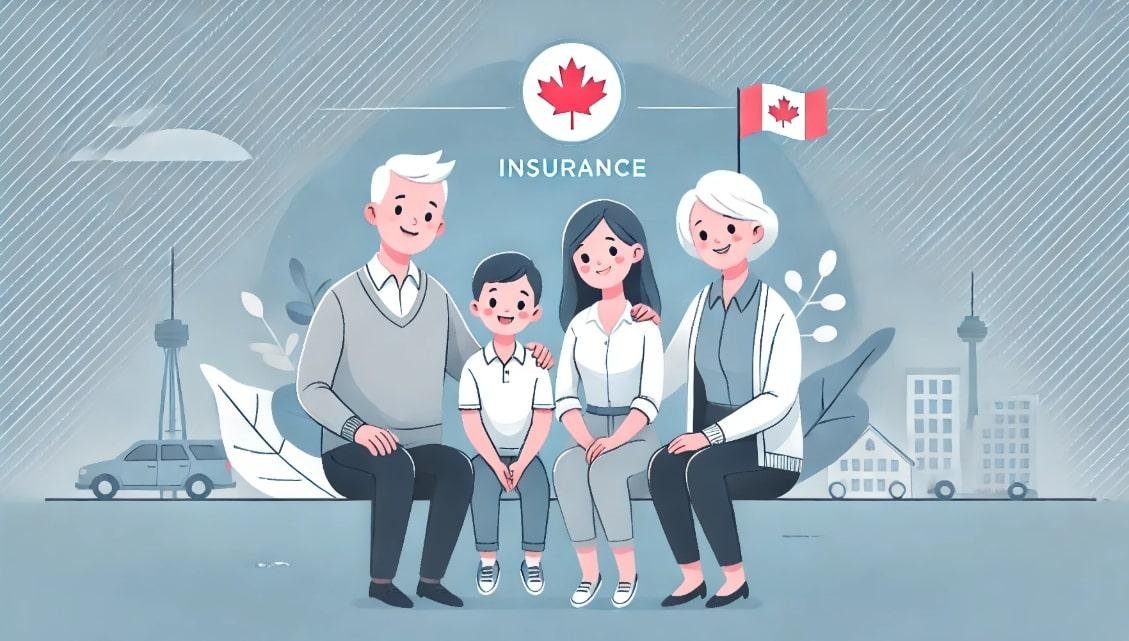Bringing your parents to Canada is a heartfelt decision—one that deserves careful planning, especially when it comes to their health. The Super Visa allows parents and grandparents of Canadian citizens or permanent residents to stay in Canada for extended periods. But before this long-term visit can begin, there’s one non-negotiable requirement: Super Visa insurance.
If you're applying from India, understanding the ins and outs of parent Super Visa insurance is essential. This guide walks you through everything you need to know—from coverage and costs to choosing the right plan from abroad.
What Is Super Visa Insurance?
Super Visa insurance is a mandatory health insurance policy that covers emergency medical care, hospitalization, and repatriation for parents or grandparents visiting Canada under the Super Visa program.
Why is it required?
Because healthcare in Canada is not free for visitors. Without insurance, any medical emergency could lead to massive out-of-pocket expenses. To protect both your loved ones and the Canadian healthcare system, this insurance provides peace of mind and financial security.
What Are the IRCC Requirements?
According to Immigration, Refugees and Citizenship Canada (IRCC), a valid Super Visa insurance policy must meet the following criteria:
- Minimum coverage of CAD $100,000
- Valid for at least one year from the date of entry
- Must cover health care, hospitalization, and repatriation
- Must be purchased from a Canadian insurance company
Even if you're applying from India, you’ll need to purchase the policy from a Canada-based insurer, though many of them accept applications online and offer multilingual support for Indian residents.
Parent Super Visa Insurance: Why It Matters
Parents and grandparents traveling from India may be more vulnerable to health issues due to age and travel stress. Super Visa insurance not only fulfills a legal requirement but also ensures they receive timely medical care without financial strain.
Benefits of parent Super Visa insurance include:
- Emergency hospitalization coverage
- Prescription drug coverage (in many plans)
- Coverage for accidental injury
- Coverage for emergency dental treatment
- Access to a 24/7 helpline
Some plans even offer partial refunds if your parents return home early or their visa is refused.
How to Buy Super Visa Insurance from India
Though the insurance must come from a Canadian provider, the process of purchasing it from India is straightforward and completely online.
Step 1: Research Canadian Insurance Providers
Look for trusted providers that specialize in visitor insurance for Super Visa holders. Some of the popular ones include:
- Manulife
- Sun Life
- Allianz
- GMS (Group Medical Services)
- Tugo
- Blue Cross
These companies offer online quote tools and customer service reps who can assist you from India.
Step 2: Compare Plans
Consider factors like:
- Deductible amount
- Type of coverage (basic vs enhanced)
- Refund policy in case of early departure
- Pre-existing condition coverage (if needed)
Step 3: Purchase Online
You can make the payment from India using a credit card or international payment gateway. You’ll receive a digital policy document, which must be submitted with the Super Visa application.
Understanding the Cost: What Affects Super Visa Insurance Premiums?
The cost of Super Visa insurance depends on several factors:
- Age of the insured person – Older applicants generally face higher premiums.
- Duration of stay – Full 12-month coverage is mandatory, even if they plan to stay for only a few months.
- Medical history – Some providers charge more if pre-existing conditions are covered.
- Coverage type – Plans with higher coverage or lower deductibles cost more.
Tip: Some insurers offer monthly payment options instead of a one-time annual premium. This is useful if you prefer budget-friendly installments.
Super Visa Insurance Tips for Families in India
If you're arranging coverage from India, here are a few tips to make the process smoother:
✅ Start Early
It’s wise to get quotes and secure insurance well before you submit the Super Visa application. Insurers typically allow you to select the coverage start date, so you can align it with your parent’s planned arrival.
✅ Choose a Refundable Plan
In case the visa is rejected or travel plans change, a refundable policy saves money. Most companies provide full or partial refunds with proper documentation.
✅ Don’t Hide Medical History
If your parent has a pre-existing condition, disclose it upfront. Some insurers offer special plans that cover stable conditions. Omitting health information could invalidate claims later.
✅ Consult a Licensed Insurance Broker
If navigating options feels overwhelming, connect with a licensed broker who specializes in Super Visa insurance. Many Indian-Canadian brokers assist clients in both countries and can explain policies in regional languages.
Frequently Asked Questions (FAQs)
Q: Can I pay in Indian Rupees for Super Visa insurance?
A: Typically, payments are made in Canadian Dollars (CAD), but your credit or debit card provider will convert the amount from INR automatically at the prevailing exchange rate.
Q: What happens if my parents stay less than 1 year?
A: You must still purchase a 12-month policy, but some companies may refund the unused portion if they return early.
Q: Can I renew the insurance if they extend their stay?
A: Yes, most providers allow policy extensions. Just make sure to renew before the existing coverage expires.
Q: Does it cover COVID-19?
A: Many modern Super Visa insurance plans do include COVID-19 coverage, but confirm this when reviewing your policy.
Final Thoughts: Protecting What Matters Most
Inviting your parents to stay with you in Canada under the Super Visa program is a wonderful opportunity to reunite and create lasting memories. But ensuring their safety with the right medical coverage is equally important.
By purchasing parent super visa insurance from India through a Canadian provider, you’re not just meeting legal requirements—you’re showing your commitment to their well-being.
Take your time to compare plans, ask the right questions, and choose a policy that reflects your family’s needs. When your parents land in Canada knowing they’re fully protected, you’ll be glad you did.
